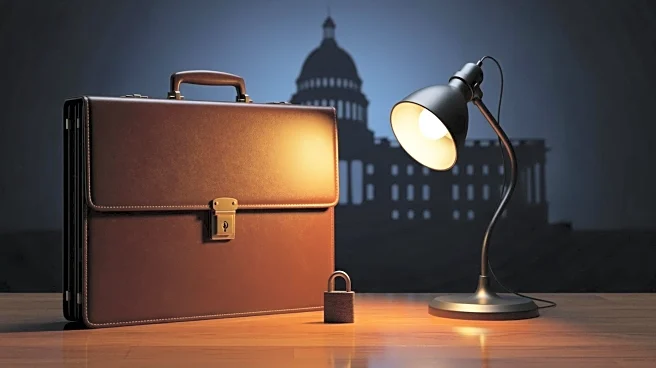What's Happening?
The ongoing government shutdown has left over 1 million federal workers without pay as Congress remains deadlocked over funding federal agencies for the current fiscal year. While lawmakers continue to receive their salaries, many federal employees are
struggling financially, with some at risk of losing their homes or vehicles. Approximately 830,000 federal workers are still being paid through alternative funding sources, such as the One Big Beautiful Bill Act and the Inflation Reduction Act. The Trump administration has taken steps to ensure that certain employees, including military personnel and FBI agents, receive their paychecks. However, around 730,000 federal employees are working without pay, and another 670,000 have been furloughed.
Why It's Important?
The shutdown's impact on federal workers highlights the financial vulnerability of many government employees who live paycheck to paycheck. The situation underscores the broader economic implications of political stalemates, as unpaid workers may struggle to meet basic needs, affecting local economies and consumer spending. The decision to pay certain groups, like military personnel, while others remain unpaid, raises questions about fairness and the prioritization of government resources. The potential for long-term financial distress among federal workers could lead to increased calls for legislative changes to protect employees during future shutdowns.
What's Next?
Senate GOP leaders are considering a bill to pay certain essential workers during the shutdown, but it faces opposition from Democrats who want all federal employees to be compensated. The outcome of this legislative effort could influence future negotiations and the resolution of the shutdown. Additionally, the Trump administration's interpretation of the 2019 law guaranteeing back pay for furloughed employees may face legal challenges, potentially affecting the financial recovery of affected workers once the shutdown ends.















